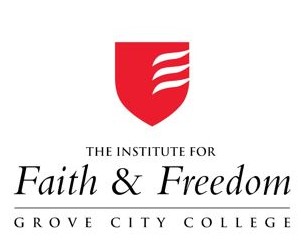Thriving at Every Age, with Gratitude

By Diane Medved, Ph.D.
What if you could significantly reduce your chances for dementia later in life simply by adopting a positive attitude now?
A new study shows that even people who carry a gene that predisposes them toward dementia were much less likely to develop it when they had positive attitudes about what their future holds. Becca Levy of the Yale School of Public Health led a reassuring study that suggests we can influence susceptibility simply by making upbeat attitude choices. Biology need not always dictate destiny.
Levy’s team followed 4,765 older Americans (average age 72) for four years, at start assessing their cognitive status, attitudes about aging, and whether they carried a variant of the APOE gene associated with increased risk of dementia. Based on previous research, the investigators hypothesized that better attitudes would correspond with less dementia–a finding strongly supported by the study’s outcome.
The academics found not only that “positive age beliefs protected older individuals from developing dementia in the total sample,” but that positive attitudes had an even greater impact for those carrying the risky gene. “In the total sample participants holding these beliefs at baseline had a 43.6% lower risk of developing dementia over the course of 4 years, compared to those holding negative age beliefs at baseline,” Levy’s team concluded. “Moreover, among those with APOE ε4 [gene], there was a 49.8% lower risk of dementia for those holding positive age beliefs…” In other words, for those more at risk, the benefit of positive attitudes was even greater. Importantly, this notably significant difference was found after controlling for factors likely to influence outlook, including age, education, sex, race and major diseases.
So, how can we cultivate a bright view of the future?
One way is to take a step back and consider our privileged place in history. Never has humankind experienced such an abundance of opportunities, material comforts and, crucially, medical resources to make our days active, healthful and to facilitate our pursuit of happiness.
Harvard psychology professor Steven Pinker details in his new book Enlightenment Now: The Case for Reason, Science, Humanism and Progress the many reasons we have to look forward to the future with anticipation. “Start with the most precious resource, life,” he reminds. “Through most of human history, continuing into the 19th century, a newborn was expected to live around 30 years. In the two centuries since, life expectancy across the world has risen to 71, and in the developed world, to 81.” We in the US have the medical support to carry many of us into our 90s. When former first lady Barbara Bush passed away at age 92, she and President Bush, 93, had enjoyed 72 years of marriage together, an inspiring example of the durability of true love.
Prof. Pinker also reminds that we can appreciate the material wealth with which we are surrounded. “The poor may not always be with us,” he proclaims. “The world is about a hundred times wealthier today than it was two centuries ago, and the prosperity is becoming more evenly distributed across countries and people.” Certainly, by objective measures, we’ve got it easy. The chuckled phrase “first world problems” acknowledges that we’re often consumed with the micro-details of a life that our ancestors and others around the globe couldn’t even fathom. How many of our great-grandparents ate in restaurants and vacationed in hotels at the frequency we do?
Taking a step back also allows us to consider our place in the universe. While Dr. Pinker thinks religion has historically retarded progress, having religious faith unmistakably confers a wide range of benefits. An interesting 2011 study from Harvard Business School confirmed the vast research showing better health, increased longevity and greater sense of well-being among religious people, and then followed how those good feelings played out. They found that those with a strong adherence and connection to their religions reported ongoing positive perspectives—but when people started to drift away, their well-being dipped even below those who claim no religious affiliation at all. According to study author Michael I. Norton and colleagues, “these results may help explain why–in spite of the well-documented benefits of religion–an increasing number of people are abandoning their faith.” So staying strong in religious attachment can enhance the well-being that promotes an optimistic view throughout life.
Perhaps the most profound means to foster a positive view of the future is to practice positivity—meaning, to express gratitude and intentionally praise others. Rabbi Lord Jonathan Sacks, former chief Rabbi for Great Britain, now a world-renown author and speaker, describes his admiration for the late Lena Rustin, whom he’d interviewed for a television special, a British speech pathologist who founded a center to cure stammering in children. Central to her method was reshaping the family dynamic, which invariably adapts to a child’s stutter. Rather than focusing on changes in the child’s speech, she required that each family member in turn praise every other family member for a specific kindness or admirable action observed that day. As there could be no exceptions permitted, the family soon became more loving and accepting, and equally significantly, the parents reported that their marriages improved.
This is the antidote to negativity—voicing gratitude and praise. It’s also the pathway to a positive view of the future, as appreciation for others and one’s surroundings becomes habitual. And it’s a method to thwart the obnoxious entitlement mentality many children who are incessantly praised and not allowed to fail exhibit, because they learn their indebtedness to those who provide for them.
One of many studies in a Wall Street Journal article on the well-documented benefits of gratitude, from the Journal of Positive Psychology, looked at its rewards for teens. After following their development of gratitude over four years from middle through high school, the researchers found that grateful teens showed more pro-social behavior (and less anti-social behavior), enjoyed stronger relations with peers, and “were better at managing their lives and identifying important goals for the future.” Study lead Giacomo Bono concludes, “When adolescents regularly express gratitude, it’s a good litmus test that they’re thriving.”
Incorporating praise and gratitude into daily discourse advantages those in every age group. When we teach our toddlers to say “thank you” and seek our own opportunities to model it, when we take the time to notice kindness and beauty, and when we acknowledge the miraculous nature of the everyday, we prepare ourselves for a rewarding present and a healthy old age.
###
Diane Medved, Ph.D. is a psychologist and author of six books, most recently Don’t Divorce: Powerful Arguments for Saving and Revitalizing your Marriage.





















